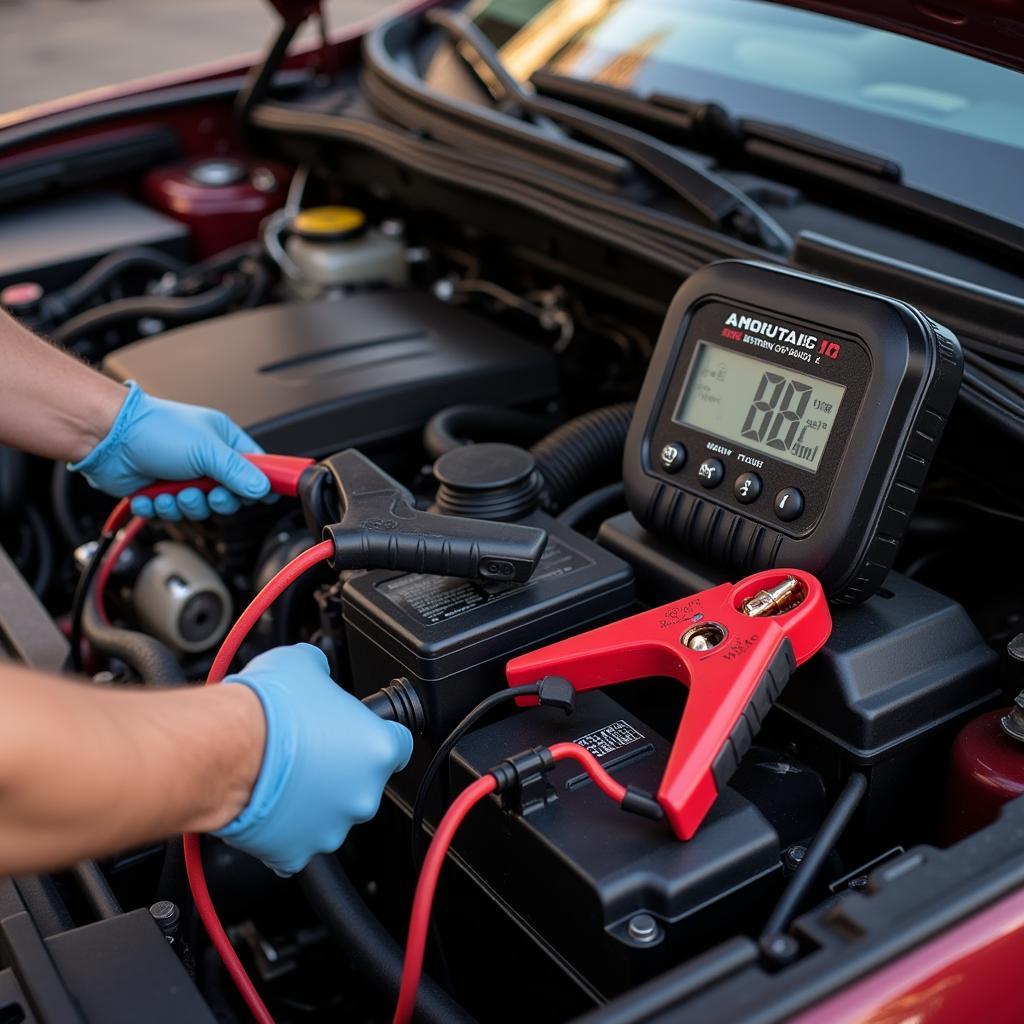Understanding Car Problem Signals is crucial for maintaining your vehicle’s health and preventing costly repairs. Whether it’s a strange noise, a flickering light, or a change in performance, your car communicates its issues through various signals. Ignoring these signals can lead to more significant problems down the road. car problem signal Let’s delve into the world of car problem signals and learn how to interpret them effectively.
Common Car Problem Signals and Their Meanings
Cars, like any complex machines, have a language of their own. They communicate their needs and problems through a variety of signals. Recognizing these signals is the first step towards effective troubleshooting.
Warning Lights on Your Dashboard
Your dashboard is the central communication hub for your car. Illuminated warning lights serve as immediate indicators of potential issues. A check engine light, for instance, can indicate anything from a loose gas cap to a serious engine malfunction. Similarly, a flashing oil light signals low oil pressure, requiring immediate attention to prevent engine damage.
- Check Engine Light: This ubiquitous light can indicate a range of problems, from minor sensor malfunctions to significant engine issues. Don’t ignore it!
- Oil Pressure Light: A flashing or illuminated oil light indicates low oil pressure, a critical condition that can damage your engine. Stop driving immediately and check your oil level.
- Battery Light: This light signals a problem with your car’s charging system. It could be a failing alternator, a loose battery connection, or a worn-out battery.
Unusual Noises
Strange noises emanating from your car are often the first sign of trouble. A squeaking brake pedal may indicate worn brake pads, while a grinding noise during gear shifts could point to transmission problems. Paying attention to these auditory cues can save you from costly repairs later on.
- Squeaking Brakes: This often indicates worn brake pads and requires immediate attention for safety.
- Grinding Noises During Gear Shifts: This could signify a problem with your transmission and warrants a professional inspection.
- Knocking Sounds from the Engine: This can indicate a serious internal engine problem and requires immediate diagnosis.
Changes in Performance
A decrease in fuel efficiency, difficulty starting, or sluggish acceleration can all be signs of underlying car problems. Ignoring these performance changes can exacerbate the issue and lead to further damage. Regularly monitoring your car’s performance can help you identify problems early on.
- Decreased Fuel Efficiency: This can be caused by various factors, including a dirty air filter, faulty oxygen sensors, or even tire pressure issues.
- Difficulty Starting: This could indicate a problem with the battery, starter motor, or fuel system.
- Sluggish Acceleration: This can be a sign of a clogged fuel filter, a failing fuel pump, or other engine-related problems.
troubleshooting car problems-turn signals “Regular maintenance is key to preventing many car problems,” says automotive expert John Davis. “Simple checks like monitoring fluid levels, tire pressure, and listening for unusual noises can help identify potential issues before they escalate.”
Diagnosing Car Problem Signals: A Step-by-Step Approach
- Identify the Signal: What is the specific problem you’re experiencing? Is it a warning light, a strange noise, or a change in performance?
- Gather Information: When did the problem start? Does it happen intermittently or consistently? Are there any specific conditions that trigger the problem?
- Consult Your Owner’s Manual: Your owner’s manual is a valuable resource that can provide specific information about your car’s warning lights and potential problems.
- Use a Diagnostic Tool: An OBD-II scanner can provide detailed information about your car’s systems and help pinpoint the source of the problem. what physics problems are plaguing driverless cars
- Seek Professional Help: If you’re unable to diagnose the problem yourself, it’s best to consult a qualified mechanic.
“Don’t underestimate the importance of regular maintenance,” adds Jane Miller, a seasoned mechanic. “A little preventative care can go a long way in avoiding costly repairs down the line.”
Car Problem Signals: FAQs
- What does a flashing check engine light mean? A flashing check engine light indicates a serious problem that requires immediate attention. Pull over and have your car towed to a mechanic.
- Why is my car making a grinding noise when I brake? This usually indicates worn brake pads and requires immediate replacement.
- How often should I check my car’s fluids? It’s recommended to check your car’s fluids at least once a month.
cara mengatasi troubleshoot problem wifi toyota car models acceleration problem
In conclusion, understanding car problem signals is essential for maintaining your vehicle’s health and preventing costly repairs. By paying attention to your car’s warnings, you can address potential issues proactively and keep your car running smoothly. Don’t hesitate to reach out to AutoTipPro for any assistance. Contact us at +1 (641) 206-8880 or visit our office at 500 N St Mary’s St, San Antonio, TX 78205, United States.






Leave a Reply